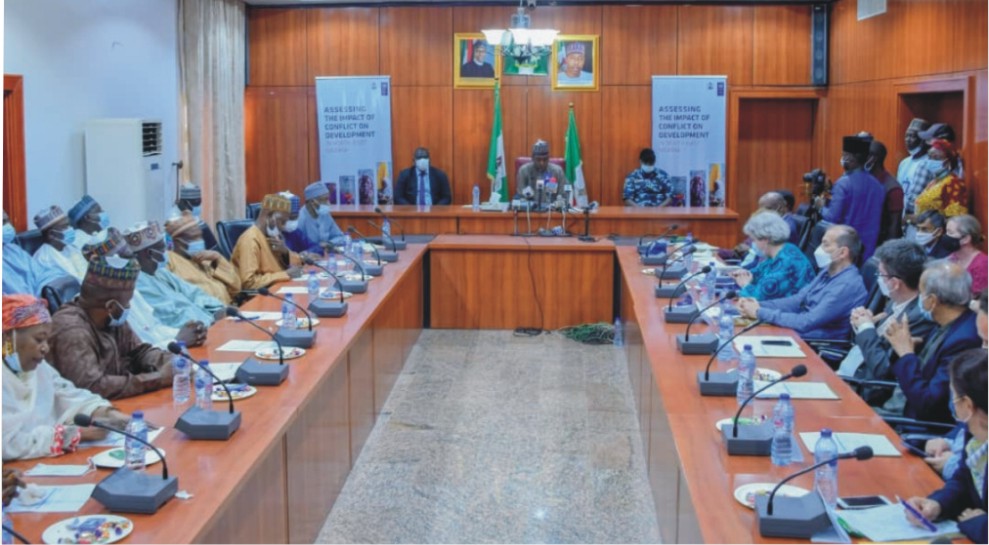Business
IMF Warns Nigeria, Others Over Low Oil Production

In order for to resolve challenges related to low crude oil production, the International Monetary Fund (IMF) has listed measures for Nigeria and other oil-producing economies need to put in place.
Disclosing this in its April 2023 World Economic Outlook with the theme “A Rocky Recovery”, the IMF said countries that produce fossil fuels need structural adjustment in order to manage the impact of declines in fossil fuel production.
The fund also said countries at risk of declining fossil fuel output also need to improve public finances and the quality of their institutions, diversify their economies, set up sovereign wealth funds, and facilitate the reallocation of production factors.
It also suggested that such countries needed to take the following action steps such as ameliorating the business environment to attract investment in new, productive, higher-value-added sectors, modernising infrastructure and attracting foreign direct investment in research and development, and improving the human capital stock of the labour force by investing in education.
“The pace and direction of the clean energy transition as well as the price outlook depend on the policy mix. This creates great uncertainty in countries that produce fossil fuels. If fossil fuel prices decline because of a climate policy mix that works mostly through the demand side, high-cost producers will need to shut down production.
“If those prices instead rise based on a climate policy mix that relies on supply cuts, local production declines will depend on domestic policy decisions. Climate policy certainty, at the country and global levels, could make adjustments more predictable and less costly”, the report read in part.
Data from the Nigerian Upstream Petroleum Regulatory Commission revealed that Nigeria recorded 1.26 million barrels per day of crude oil production, produced 63,756 blended condensates and 185,469 unblended condensates, making a total of 1,517,426 in March 2023.
This is the first dip in the country’s crude production in 2023 from 1.3 million barrels per day recorded in January and February.
Crude oil theft, lack of investments, and the transition to renewable energy are some of the factors that have been responsible for Nigeria’s inability to increase oil production significantly.
A professor of Economics and Public Policy at the University of Uyo, Akwa Ibom State, Akpan Ekpo, had in an interview with The Tide source said despite crude oil retaining 80 per cent of the total trade, Nigeria needs to diversify as oil revenue was no longer reliable.
Business
Nigeria’s ETF correction deepens as STANBICETF30, VETGRIF30 see 50% decline in a week

Business
BOI Introduces Business Clinic

Business
Dangote signs $400 mln equipment deal with China’s XCMG to speed up refinery expansion

-
Maritime2 days ago
Nigeria To Pilot Regional Fishing Vessels Register In Gulf Of Guinea —Oyetola
-
Maritime2 days ago
Customs Declares War Against Narcotics Baron At Idiroko Border
-

 Sports2 days ago
Sports2 days agoGombe-Gara Rejects Chelle $130,000 monthly salary
-
Maritime2 days ago
NIMASA,NAF Boost Unmanned Aerial Surveillance For Maritime Security
-

 Sports2 days ago
Sports2 days agoTEAM RIVERS SET TO WIN 4×400 ” MORROW” …Wins Triple jump Silver
-
Maritime2 days ago
NIWA Collaborates ICPC TO Strengthen Integrity, Revenue
-

 Sports2 days ago
Sports2 days agoNPFL Drops To 91st In Global League Rankings
-

 Sports2 days ago
Sports2 days agoNPFL Impose Fines On Kwara United Over Fans Misconduct

